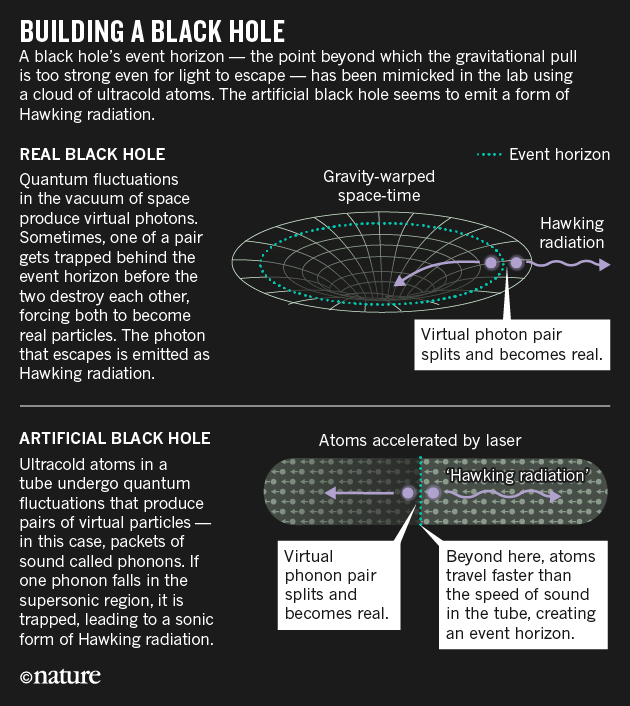From
GE Reports '
Five Coolest Things On Earth This Week:
Few topics have ignited more bitter squabbling among eminent physicists than black holes. Image credit: Getty Images
Jeff Steinhauer, an experimental physicist at the Technion-Israel
Institute of Technology in Haifa in Israel, built an artificial black
hole in his laboratory. The experiment might confirm one of Stephen
Hawking’s boldest theories: that these most mysterious objects in the
universe evaporate over eons. Black holes are so massive that they
collapse time and the space around them into a singularity, a point so
warped no matter or light can escape. But Hawking proposed that some
radiation would get out. Nature
reported that the hole in Steinhauer’s lab “seems to emit such ‘Hawking
radiation’ on its own, from quantum fluctuations that emerge from its
experimental set-up.” Steinhauer told the magazine that such “black-hole
analogues might help to solve some of the dilemmas that the phenomenon
poses for other theories, including one called the black-hole
information paradox, and perhaps point the way to uniting quantum mechanics with a theory of gravity.”
The idea of a star collapsing on itself and forming a black hole was
conceived by German physicist Karl Schwarzschild while solving Albert
Einstein’s general relativity equations on the Russian front in World
War I. Schwarzschild didn’t survive the war, but his idea lived on. In
fact, few topics have ignited more bitter squabbling among eminent
physicists since. Einstein didn’t believe in black holes. Fellow Nobel
Prize winner Subrahmanyan Chandrasekhar did, but he never recovered his
balance after he clashed over them with Sir Arthur Eddington, who
didn’t. Robert Oppenheimer proved their existence, only to have his
claims publicly doubted by John Wheeler, who paradoxically coined the
term black hole. Now Hawking, thanks to Steinhauer, may have the last
laugh, if not a Nobel.
The piece in Nature is titled "
Artificial black hole creates its own version of Hawking radiation" and includes this handy graphic for the do-it-yourself crowd:

